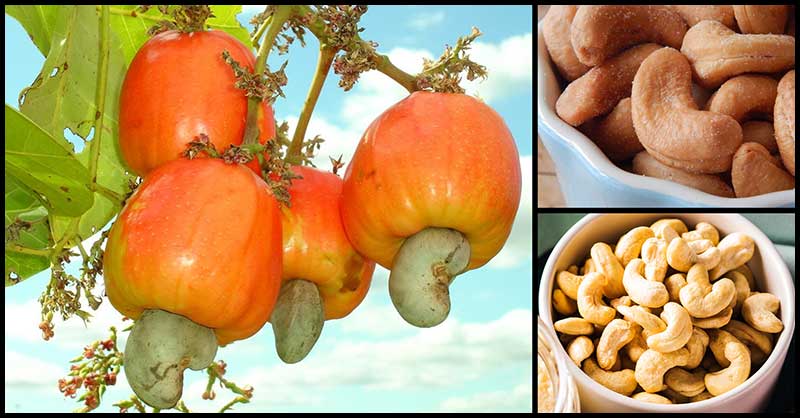Cashews are kidney-shaped seeds that are produced by the cashew tree. They are rich in nutrients and beneficial plant compounds and make for easy addition to many dishes.
How Cashew Benefits The Body
1. Loaded With Beneficial Plant Compounds
Contained in cashews are carotenoids and polyphenols, two categories of antioxidants that may help reduce inflammation and offer protection from disease (1).
In addition to this, cashews also contain both vitamins E and K, some of the most potent antioxidants that help our body fight off oxidative damage (2).
2. Contains Healthy Fats
The fat contained in cashews is mostly unsaturated fatty acids, of which 75 percent is oleic acid, the same type of monounsaturated fat that is present in olive oil. Moderate consumption of it can help lower our levels of LDL cholesterol and prevent the risk of stroke or heart attack (3).
3. May Be Beneficial For People With Type-2 Diabetes
People with type 2 diabetes may benefit from adding cashews to their diet.
Cashews are loaded with fiber which helps prevent blood sugar spikes and which is believed to offer protection against type 2 diabetes, according to studies (4,5).
Moreover, it has very low amounts of sugar, and no harmful cholesterol, making them safe for people with diabetes. However, only 4-5 cashew nuts are recommended per day by nutritionists (6).
4. Helps Promote Formation of Red Blood Cells
Copper plays a part in the metabolism of iron, aiding in the formation of red blood cells (RBC), and helps keep the blood vessels, nerves, immune system, and bones healthy (7).
One-fourth of cashews contains 38 percent of our recommended daily allowance of copper.
5. Helps Maintain Healthy Muscles And Nerves
Cashews have high amounts of magnesium. This nutrient is required for bone health and the proper function of our muscles, nerves, and immune system. It also helps to regulate blood pressure.
Early signs of magnesium deficiency include loss of appetite, nausea, vomiting, fatigue, and weakness. As magnesium deficiency worsens, numbness, tingling, muscle contractions and cramps, seizures, personality changes, abnormal heart rhythms, and coronary spasms can occur (8).
One-fourth cup of cashews contains 22.3 percent of our recommended daily allowance of magnesium.
Sources:
- https://www.healthline.com/nutrition/are-cashews-good-for-you#plant-compounds
- https://nuts.com/healthy-eating/benefits-of-cashews
- https://www.livestrong.com/article/239680-what-are-the-benefits-of-the-cashew-fruit/
- https://www.ncbi.nlm.nih.gov/pmc/articles/PMC5883628/
- https://pubmed.ncbi.nlm.nih.gov/29378044/
- https://www.organicfacts.net/health-benefits/seed-and-nut/health-benefits-of-cashews.html
- https://medlineplus.gov/ency/article/002419.htm
- https://ods.od.nih.gov/factsheets/Magnesium-HealthProfessional/









